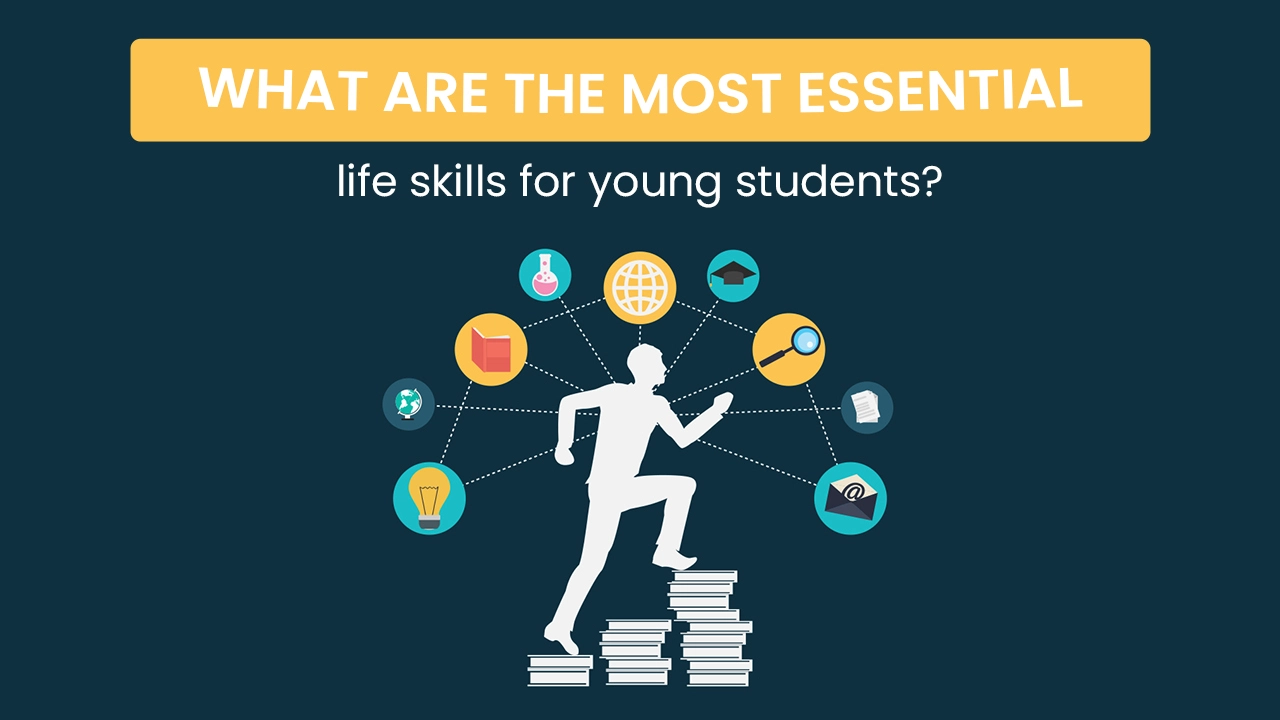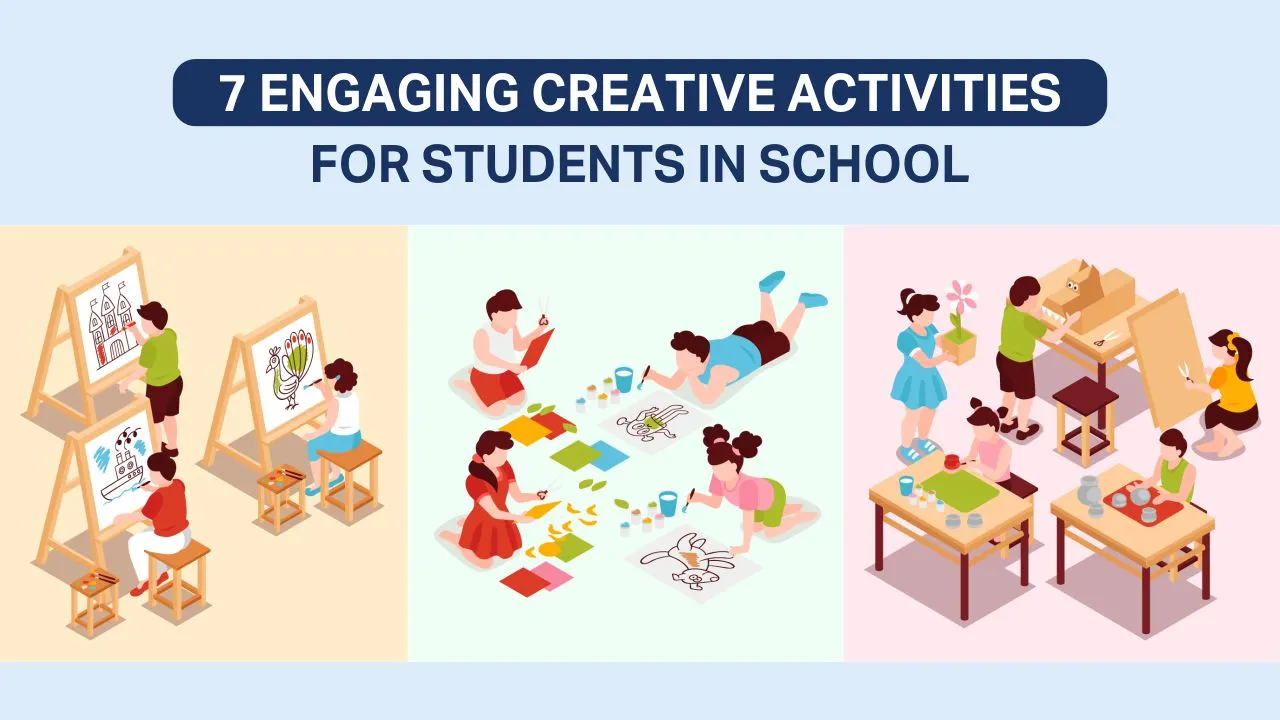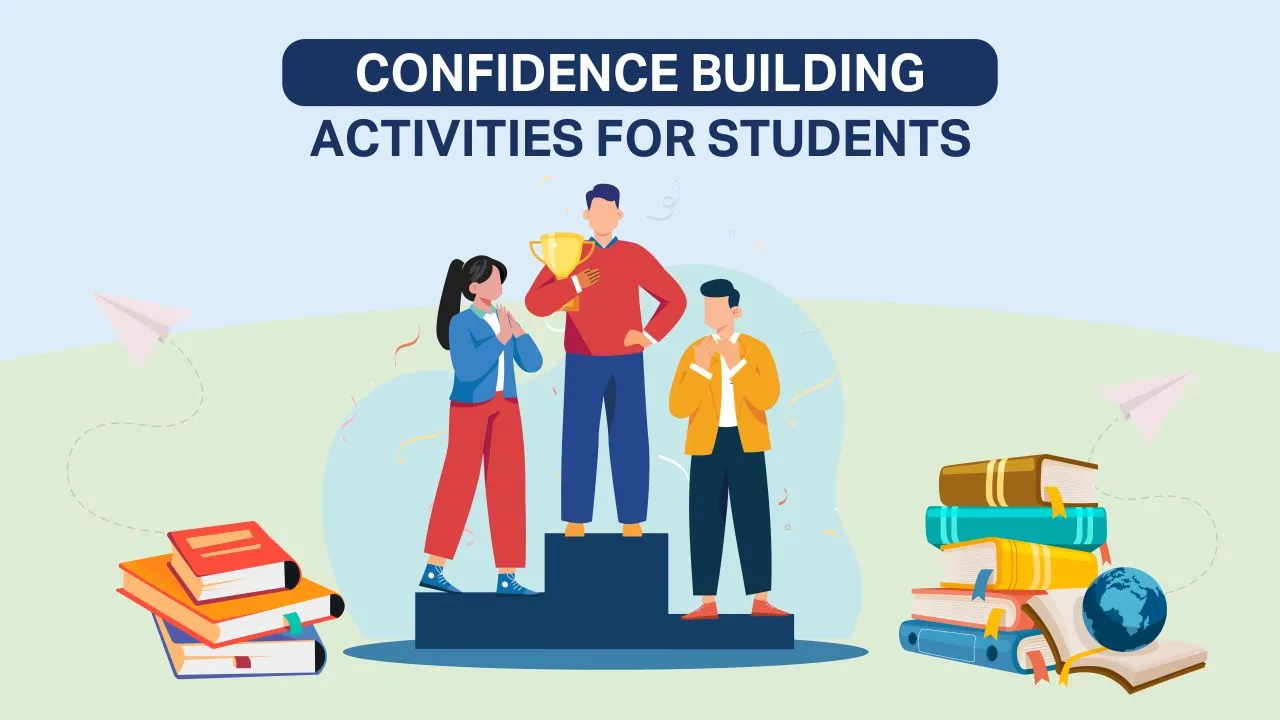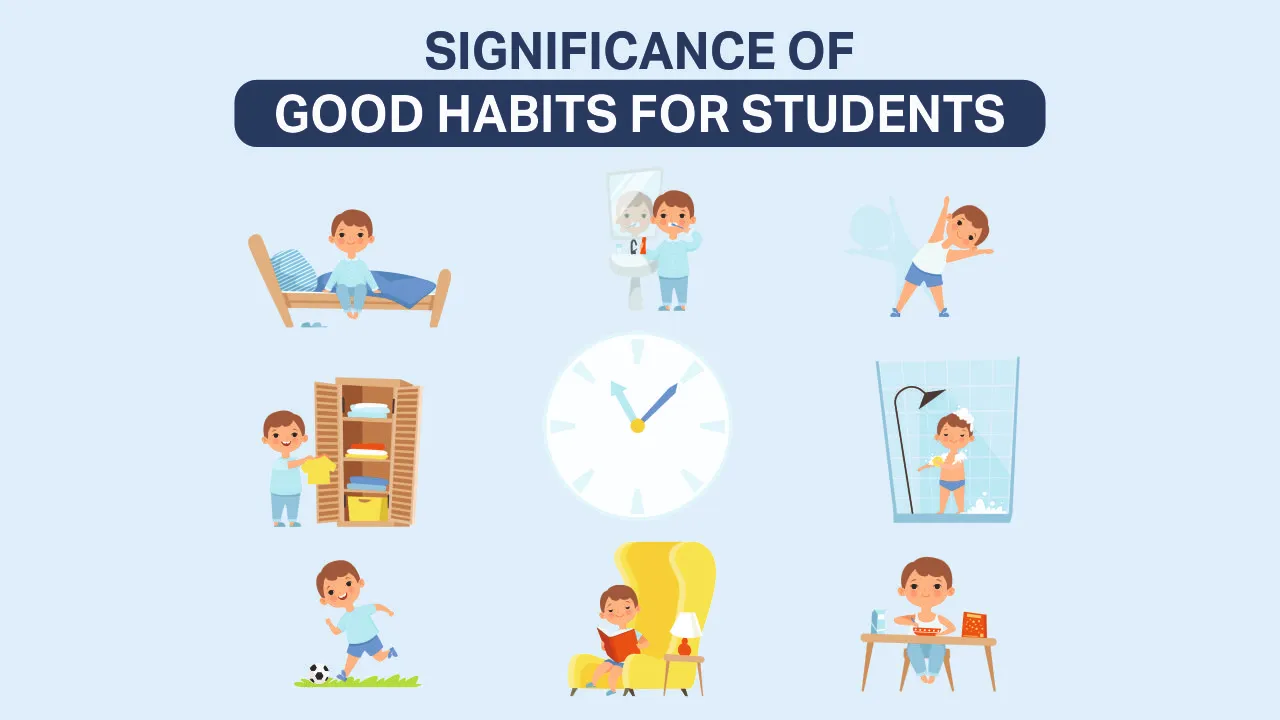What are the most-essential life skills for young students?
Every student requires fundamental life skills at a young age in today’s fast-paced world to handle everyday challenges and learn beyond the classroom. Promoting life skills in students encouraged them to develop become socialise, gain confidence, think critically and make new friends. Let’s talk about the importance of life skills for students.
In this blog today, we will discuss the importance of life skills for students. We’ll also look at the significant role a school plays in instilling crucial life skills in its pupils.
What are the Essential Life Skills for Students?
Life skills refer to a set of abilities that are necessary to succeed in everyday life. These skills are not taught in traditional academic settings but are essential to developing a well-rounded individual. Some of the life skills that young students need to develop are:
Communication: The ability to communicate adequately is one of the most important life skills. Students should learn how to express themselves clearly and listen actively to others.
Problem-solving: Problem-solving skills enable students to identify and resolve issues they encounter in their personal and professional lives.
Time management: Students must learn to manage their time effectively to accomplish their academic and personal goals.
Teamwork: The ability to work in a team with others is a vital life skill that is indeed very much important for attaining success on both personal and professional fronts.
Leadership: Leadership skills help students become confident and responsible individuals who can lead others toward a common goal.
A School’s Role in Instilling Life Skills in Students
You must have understood by now that life skills are very important for children and are indeed necessary to enable their holistic growth. But how to instil young minds with these skills?
Ideally, promoting life skills among young students requires a collaborative effort from parents and teachers. While parents are doing their part at home here, in this blog, let us shed some light on what role your child’s school plays in this regard:
Incorporating life skills into the curriculum: Schools play a fundamental role in consistently giving students the desired outcomes and emphasize incorporating life skills as part and parcel of their pedagogy. When that happens, students naturally get onto the path of developing essential competencies. This means that even when children study in classrooms, they are not just growing academically but also earning some important life skills.
Encouraging extracurricular activities: Extracurricular activities such as sports, music, and drama help students develop life skills more naturally. For example, playing a team sport can teach students the importance of teamwork and leadership. If your child’s school keeps providing your kids with regular opportunities to explore their interests in the extracurricular sphere, you can rest assured that the school is aptly playing its part.
Organizing debates and other competitions: Schools help to foster communication skills by encouraging students to express themselves, share their opinions, and participate in group discussions. This is where activities like debates and elocution competitions work great by honing the communication skills of students and infusing them with the necessary confidence to speak out.
Creating a structured environment: Since a school day is typically divided into blocks of time, with specific start and end times for each class, it helps create a sense of routine and structure among children. Assignments and projects are often given with clear deadlines, which teaches students the importance of managing their time and prioritizing tasks. In addition, schools often have rules and expectations regarding behaviour, attendance, and academic performance, which instil discipline and accountability in students.
Providing opportunities for community service: Community service projects organized by schools can help students develop empathy, leadership, and social skills. Students get to volunteer at local charities or organise fundraising events for a good cause.
Conclusion
Life skills for students are just as crucial as academic proficiency and practical know-how for them. In fact, in today’s fast-paced and complex world, individuals must possess a wide range of skills that go beyond traditional academic knowledge. These skills enable them to navigate challenges and make informed decisions, interact effectively with others, manage their emotions, and adapt to new situations. In a nutshell, life skills are critical for student’s success in both their personal and professional lives, and schools play a vital role in instilling these skills.
Thus, if you are a parent who prioritises your child’s holistic development, make sure you enroll your child in a school where the focus is not merely on grades but also on developing life skills in its students.





